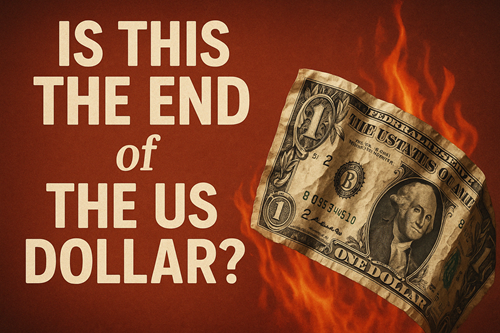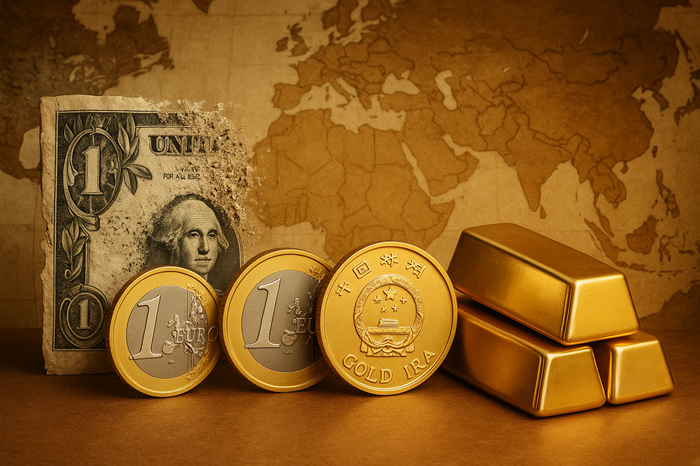Have you ever wondered what keeps the U.S. dollar at the top of the global currency food chain? It’s more than just green paper—it’s power, trust, and a whole lot of history. But what if that dominance came crashing down? What if, one day, countries around the world decided they’d rather hold something else—say, the Euro or the Chinese Yuan or just as likely Bitcoin—instead of the dollar?
Buckle up, because the ripple effects would be massive.
What Does “Reserve Currency Status” Actually Mean?
Let’s start with the basics. A “reserve currency” is a foreign currency that countries hold in large quantities to conduct international trade, settle debts, and back their own currencies. It’s kind of like the global economy’s go-to cash stash.
The U.S. dollar has played that role since the end of World War II. Right now, more than half of global reserves are held in dollars. That means central banks, corporations, and investors all over the world use it as their financial security blanket. It’s trusted, stable, and widely accepted.

Is This The End of The US Dollar?
How Did the Dollar Become the World’s Reserve Currency?
This didn’t happen by accident. The U.S. earned its spot at the top through a mix of timing, power, and policy. After WWII, the Bretton Woods Agreement pegged other currencies to the U.S. dollar, which was in turn backed by gold. When the gold standard ended in the 1970s, the dollar still held strong—thanks in part to the petrodollar system, where oil sales were priced exclusively in U.S. dollars.
Plus, the U.S. economy was booming, its financial markets were deep and liquid, and its political system was (relatively) stable. In short: the world trusted the dollar.
Why Would the Dollar Lose Its Reserve Status?
Now let’s talk about the cracks in the armor.
Here are some growing threats:
- Rising U.S. debt: Trillions in national debt and persistent deficits could erode confidence.
- Inflation fears: If inflation spirals, global holders of U.S. dollars could start looking for safer bets.
- Geopolitical tensions: Sanctions and weaponizing the dollar can push other countries to seek alternatives.
- China’s ambitions: With moves like the digital Yuan and trade deals in local currencies, Beijing is eyeing the throne.
- Dedollarization: A growing number of countries (think BRICS) are trying to shift away from dollar dependency.
If enough countries make the switch, the dollar could slowly lose its reserve status—not with a bang, but with a long, drawn-out whimper.

Immediate Economic Impacts in the U.S.
Let’s say the shift starts tomorrow. What changes?
- Higher interest rates: With less demand for U.S. Treasuries, the government would have to offer higher yields to attract buyers.
- Inflation pressure: A weaker dollar could make imports more expensive, driving up prices at home.
- More expensive debt: Borrowing would get pricier for the U.S. government, businesses, and consumers.
- Market volatility: Global investors might panic, and that spells turbulence in stocks, bonds, and beyond.
You’d feel it at the gas pump, the grocery store, and even in your mortgage rate. In other words, everyday life would get more expensive—fast.
Global Shifts: Winners and Losers
If the dollar loses its grip, who takes its place?
- Possible winners: The Euro, the Chinese Yuan, or even a basket of digital currencies could step up.
- Emerging markets: Some countries might benefit by gaining more control over their trade terms.
- Losers: Nations heavily reliant on dollar reserves or dollar-denominated debt could face chaos.
Global trade would need to be renegotiated. Corporations with international reach would have to adjust their currency strategies. And international institutions might see major restructuring.
Long-Term Consequences for Americans
The long game looks even more sobering.
- Standard of living: U.S. consumers benefit from cheap imports due to the strong dollar. Lose that, and everything from electronics to avocados costs more.
- Global influence: The U.S. uses the dollar’s dominance as a soft power tool—sanctions, trade deals, military funding. Without it, global leverage takes a hit.
- Domestic economy: Manufacturing may return, but only because importing becomes too costly. It’s not necessarily a silver lining—it’s a survival tactic.
And here’s where it gets personal: if you’re planning for retirement or simply trying to protect your savings, this scenario might sound a bit… unsettling. That’s why many investors have started to look at hedging options like precious metals. Things like Gold IRAs, for instance, are increasingly popular because they offer a way to diversify away from traditional, dollar-denominated assets.
No one’s saying ditch your entire portfolio—but having a little “just in case” insurance doesn’t hurt, especially when the dollar’s future feels uncertain.
Can the Dollar Regain Dominance?
It’s not all doom and gloom—yet.
There are ways the dollar could keep its crown:
- Policy reform: Tackling national debt and restoring fiscal discipline could rebuild confidence.
- Innovation: A U.S. digital dollar or stronger monetary tools might help stay competitive.
- Global trust: At the end of the day, trust is everything. And trust can be earned back.
Other reserve currencies have come and gone throughout history—from the British pound to the Dutch guilder. The key difference? They were replaced after major shifts in global power. If the U.S. can stay competitive and stable, the dollar might just hang on.
Final Thoughts
Losing dollar reserve status wouldn’t be an overnight collapse—but it would mark a profound shift in global economic power. For the U.S., it could mean higher costs, reduced influence, and a wake-up call about economic sustainability. For the rest of the world, it could mean opportunity—or instability.
Either way, it’s a scenario worth understanding—because if and when it happens, it won’t just be economists who feel it. It’ll be all of us. And while we can’t control global monetary policy, we can take steps to prepare financially—diversifying, staying informed, and yes, even considering assets that hold value when currencies don’t.

